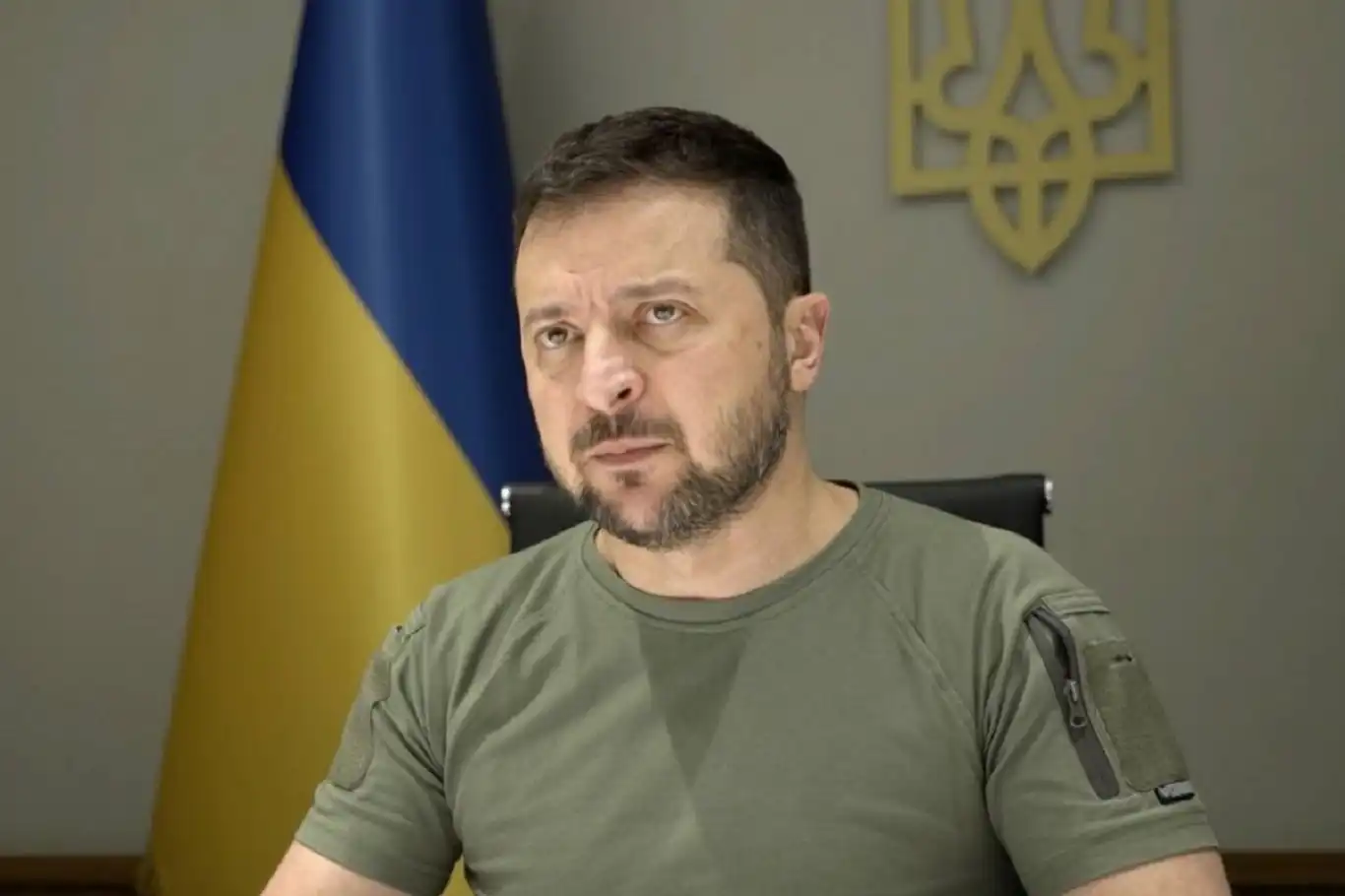Zelenskyy: Ukraine’s strikes have cut Russia’s oil refining capacity by 20%


Ukraine’s long-range strikes on oil refineries deep inside Russia have reduced Moscow’s total oil refining capacity by around 20%, President Volodymyr Zelenskyy announced on Tuesday, citing intelligence shared by Western governments.
Speaking to reporters in Kyiv, Zelenskyy said over 90% of these deep strikes were conducted using indigenous long-range drones and missiles developed and produced inside Ukraine. “We just need to work on this every day,” he said, underscoring the country’s need for additional financial and technological support from Western allies to sustain the campaign.
Ukraine has increasingly relied on long-range domestic weaponry to strike strategic Russian energy and industrial facilities hundreds of kilometers beyond the frontlines. Ukrainian forces have targeted key refineries in Ryazan, Kaluga, Leningrad, and Krasnodar regions, aiming to weaken Russia’s war economy by disrupting oil production and refining infrastructure that funds the invasion.
According to Western defense assessments, Ukrainian strikes since early 2024 have destroyed or damaged at least a dozen Russian refineries, forcing Moscow to redirect crude exports and limit domestic fuel supplies. The resulting output loss is estimated to cost the Kremlin billions of dollars in monthly revenue.
Oil Exports: The Lifeline of Russia’s War Machine
Oil and gas exports remain the backbone of Russia’s wartime economy, generating more than one-third of the country’s federal budget. Despite multiple rounds of international sanctions, Moscow has continued to export large volumes of crude, particularly to China and India, often at discounted prices.
However, the latest wave of U.S. and European sanctions aims to further constrict this financial lifeline.
Last week, U.S. President Donald Trump announced new measures targeting Rosneft and Lukoil, two of Russia’s largest energy corporations. The sanctions, scheduled to take effect on November 21, are designed to freeze overseas assets, restrict access to Western insurance and shipping services, and ban the sale of refining technology or spare parts to the companies.
Trump characterized the move as “a decisive step to limit Moscow’s ability to fund its aggression,” while also hinting that the measures could serve as leverage in future talks with the Kremlin. “He probably will use this as a tool of pressure or dialogue with the Russians,” Zelenskyy noted.
India and China in the Spotlight
The Ukrainian president said that India had sent signals indicating it will reduce its imports of Russian oil, a move that could further tighten Moscow’s export options. “India has definitely given all the signals that it will reduce imports of energy resources from Russia,” Zelenskyy told reporters.
Zelenskyy also expressed optimism that Trump’s upcoming meeting with Chinese President Xi Jinping in South Korea on Thursday could lead to additional reductions in Chinese purchases of Russian crude — potentially depriving Moscow of another major customer.
War at a Stalemate, Economy Under Pressure
After nearly four years of full-scale war, the conflict shows no signs of resolution despite renewed peace initiatives led by Washington and European partners. The Kremlin continues to show no willingness to compromise, while Kyiv intensifies its strategy of economic attrition — striking Russia’s ability to sustain the war rather than only targeting military positions.
Analysts note that Russia’s economy remains under growing stress. A recent report from the International Energy Agency (IEA) suggested that continued refinery losses and tightening sanctions could reduce Russia’s oil export revenue by up to 25% by early 2026, significantly constraining the Kremlin’s wartime spending capacity.
Still, with strong trade ties to Asian buyers and a vast shadow fleet of oil tankers circumventing Western restrictions, Moscow is expected to find temporary workarounds.
As Zelenskyy put it, the fight now extends far beyond the battlefield: “Every drone that reaches a refinery in Russia weakens their ability to fund the bombs that fall on our cities. This is how we defend Ukraine — and how we bring the end of this war closer.” (ILKHA)
LEGAL WARNING: All rights of the published news, photos and videos are reserved by İlke Haber Ajansı Basın Yayın San. Trade A.Ş. Under no circumstances can all or part of the news, photos and videos be used without a written contract or subscription.
The United Nations Independent International Commission of Inquiry has revealed overwhelming evidence of atrocities committed by Israeli forces in Gaza, documenting over 16,000 pieces of evidence — including photographs, witness testimonies, and investigative reports — pointing to war crimes, crimes against humanity, and acts of genocide against the Palestinian people.has revealed overwhelming evidence of atrocities committed by Israeli forces in Gaza, documenting over 16,000 pieces of evidence — including photographs, witness testimonies, and investigative reports — pointing to war crimes, crimes against humanity, and acts of genocide against the Palestinian people.
Israeli occupation forces have massacred at least 91 Palestinians, including 35 defenseless children, across the besieged Gaza Strip since Tuesday evening, flagrantly violating the fragile ceasefire agreement, Palestinian medical authorities reported.
Türkiye has condemned Israel’s latest attacks on the Gaza Strip, describing them as a “flagrant violation of the ceasefire” and urging Israel to cease actions that undermine peace and regional stability.
The Hamas Movement has categorically denied any involvement in the alleged shooting incident in the southern Gaza city of Rafah, reaffirming its adherence to the ceasefire agreement brokered in Sharm el-Sheikh under the sponsorship of U.S. President Donald Trump.